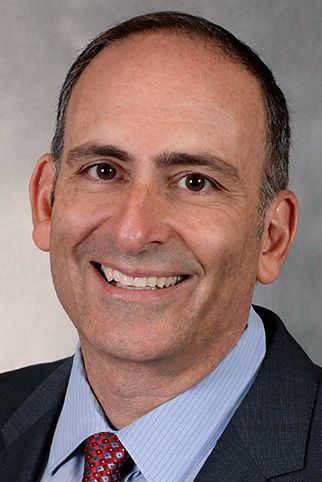
 The recent adoption at the end of December of the new EU Directive for a high level of cybersecurity across the Union -- commonly referred to as "NIS2" - paved the way for important updates to the domain name system (DNS). Most significantly, Article 28 of NIS2 and its related recitals resolved any ambiguities about the public interest served by a robust and objectively accurate WHOIS system that permits legitimate access by third parties to data... more
The recent adoption at the end of December of the new EU Directive for a high level of cybersecurity across the Union -- commonly referred to as "NIS2" - paved the way for important updates to the domain name system (DNS). Most significantly, Article 28 of NIS2 and its related recitals resolved any ambiguities about the public interest served by a robust and objectively accurate WHOIS system that permits legitimate access by third parties to data... more
 Over the past few months I have made regular references to OpenFlow. This is an exciting new development that fits in very well with several of the next generation technology developments that we have discussed in some detail over the past few years -- new developments such smart cities and smart societies, the internet of things. Such networks need to operate more on a horizontal level, rather than the usual vertical connection between a computing device and the users. more
Over the past few months I have made regular references to OpenFlow. This is an exciting new development that fits in very well with several of the next generation technology developments that we have discussed in some detail over the past few years -- new developments such smart cities and smart societies, the internet of things. Such networks need to operate more on a horizontal level, rather than the usual vertical connection between a computing device and the users. more
 This week I'm going to Washington to argue against regulating Internet access as if it were phone service. Twenty years ago I was there for the same reason. My concern now as it was then is that such regulation will damage the economy and reduce opportunity by stifling innovation and protecting the current dominant players from the startups which would otherwise threaten them. more
This week I'm going to Washington to argue against regulating Internet access as if it were phone service. Twenty years ago I was there for the same reason. My concern now as it was then is that such regulation will damage the economy and reduce opportunity by stifling innovation and protecting the current dominant players from the startups which would otherwise threaten them. more
 Most of the good thrillers I tend to watch have spies and assassins in them for some diabolical reason. In those movies you'll often find their target, the Archduke of Villainess, holed up in some remote local and the spy has to fake an identity in order to penetrate the layers of defense. Almost without exception the spy enters the country using a fake passport; relying upon a passport from any country other than their own... So, with that bit of non-fiction in mind, why do so many people automatically assume that cyber-attacks sourced from IP addresses within China are targeted, state-sponsored, attacks? more
Most of the good thrillers I tend to watch have spies and assassins in them for some diabolical reason. In those movies you'll often find their target, the Archduke of Villainess, holed up in some remote local and the spy has to fake an identity in order to penetrate the layers of defense. Almost without exception the spy enters the country using a fake passport; relying upon a passport from any country other than their own... So, with that bit of non-fiction in mind, why do so many people automatically assume that cyber-attacks sourced from IP addresses within China are targeted, state-sponsored, attacks? more
 There's often a lot of discussion about whether a piece of malware is advanced or not. To a large extent these discussions can be categorized as academic nitpicking because, at the end of the day, the malware's sophistication only needs to be at the level for which it is required to perform -- no more, no less. Perhaps the "advanced" malware label should more precisely be reattributed as "feature rich" instead. more
There's often a lot of discussion about whether a piece of malware is advanced or not. To a large extent these discussions can be categorized as academic nitpicking because, at the end of the day, the malware's sophistication only needs to be at the level for which it is required to perform -- no more, no less. Perhaps the "advanced" malware label should more precisely be reattributed as "feature rich" instead. more
 Over the next two days (9-10 June), the European Dialogue on Internet Governance (EuroDIG) takes place in Brussels, Belgium. With a theme of "Embracing the digital (r)evolution", EuroDIG has a full agenda and Internet Society staff will be participating in many aspects of the programme. For us, a primary focus will be at 11:30 CEST (UTC+2) on Thursday, June 9, when our President and CEO Kathy Brown opens the first Plenary with a keynote speech. more
Over the next two days (9-10 June), the European Dialogue on Internet Governance (EuroDIG) takes place in Brussels, Belgium. With a theme of "Embracing the digital (r)evolution", EuroDIG has a full agenda and Internet Society staff will be participating in many aspects of the programme. For us, a primary focus will be at 11:30 CEST (UTC+2) on Thursday, June 9, when our President and CEO Kathy Brown opens the first Plenary with a keynote speech. more
 I am glad to announce that the European Commission has officially launched the process to select the next Registry for the .eu Top-Level Domain (TLD). This is done through a competitive procedure that will be concluded, by October 2021, with the signature of a service concession contract between the European Commission and the entity that will be entrusted with the organisation, administration and management of the .eu TLD. more
I am glad to announce that the European Commission has officially launched the process to select the next Registry for the .eu Top-Level Domain (TLD). This is done through a competitive procedure that will be concluded, by October 2021, with the signature of a service concession contract between the European Commission and the entity that will be entrusted with the organisation, administration and management of the .eu TLD. more
 Not long after the message that Microsoft will stop updating Windows XP from 8 April onwards, after extending it beyond the regular life cycle for over a year already, came the soothing message that malware will be monitored for another year. That may be good news to some, but the fact remains that this is not the same as patching. Remaining on XP leads to a vulnerable state of the desktop, lap top and any other machine running on XP; vulnerable to potential hacks, cyber crimes, becoming part of a botnet, etc. more
Not long after the message that Microsoft will stop updating Windows XP from 8 April onwards, after extending it beyond the regular life cycle for over a year already, came the soothing message that malware will be monitored for another year. That may be good news to some, but the fact remains that this is not the same as patching. Remaining on XP leads to a vulnerable state of the desktop, lap top and any other machine running on XP; vulnerable to potential hacks, cyber crimes, becoming part of a botnet, etc. more
 The Internet was built on the promise that everyone, everywhere could create, share information and ideas without frontiers. Yet, Internet restrictions are increasing to the point they are becoming the norm. And it's happening fast. In its 2016 Freedom on the Net report, Freedom House revealed that Internet freedom declined for the 6th year in a row. The report notes that more governments have been blocking social media and communication apps than ever before. more
The Internet was built on the promise that everyone, everywhere could create, share information and ideas without frontiers. Yet, Internet restrictions are increasing to the point they are becoming the norm. And it's happening fast. In its 2016 Freedom on the Net report, Freedom House revealed that Internet freedom declined for the 6th year in a row. The report notes that more governments have been blocking social media and communication apps than ever before. more
 The new year has only just begun, but the work of ICANN's Expedited Policy Development Process for gTLD Registration Data (EPDP for short) is already in full swing. The team just wrapped up several days of meetings in Toronto and I thought it would be a good time for an update on where we are in the process. Before I go any further, I would be remiss if I didn't again take the opportunity to thank the ICANN team supporting our efforts. more
The new year has only just begun, but the work of ICANN's Expedited Policy Development Process for gTLD Registration Data (EPDP for short) is already in full swing. The team just wrapped up several days of meetings in Toronto and I thought it would be a good time for an update on where we are in the process. Before I go any further, I would be remiss if I didn't again take the opportunity to thank the ICANN team supporting our efforts. more
 Starting in mid-September, one of the largest and most sophisticated DDoS attacks ever targeted the titans of American banking. Initially, victims included Bank of America, JPMorgan Chase, Wells Fargo, PNC Bank, and U.S. Bancorp. In the weeks to come, others would also feel the pain. Websites crashed, customers were unable to make transactions and IT professionals and PR gurus went into panic mode. Leon Panetta, U.S. Secretary of Defense, said the attacks foreshadowed a "Cyber Pearl Harbor." more
Starting in mid-September, one of the largest and most sophisticated DDoS attacks ever targeted the titans of American banking. Initially, victims included Bank of America, JPMorgan Chase, Wells Fargo, PNC Bank, and U.S. Bancorp. In the weeks to come, others would also feel the pain. Websites crashed, customers were unable to make transactions and IT professionals and PR gurus went into panic mode. Leon Panetta, U.S. Secretary of Defense, said the attacks foreshadowed a "Cyber Pearl Harbor." more
 Internet use has become ever more pervasive. With around five billion global users, it generates an economy of around 15% of global gross domestic product (GDP); that's around $15 trillion and is a figure that's growing 2.5 times faster than GDP itself. This makes the internet an attractive channel for infringers. Phishing and other fraud tactics, selling counterfeit goods online, and digital piracy are primary areas of concern. more
Internet use has become ever more pervasive. With around five billion global users, it generates an economy of around 15% of global gross domestic product (GDP); that's around $15 trillion and is a figure that's growing 2.5 times faster than GDP itself. This makes the internet an attractive channel for infringers. Phishing and other fraud tactics, selling counterfeit goods online, and digital piracy are primary areas of concern. more
 Last month, for the 20th anniversary of Y2K, I was asked about my experiences. (Short answer: there really was a serious potential problem, but disaster was averted by a lot of hard work by a lot of unsung programmers.) I joked that, per this T-shirt I got from a friend, the real problem would be on January 19, 2038, and 03:14:08 GMT. Why might that date be such a problem? On Unix-derived systems, including Linux and MacOS, time is stored internally as the number of seconds since... more
Last month, for the 20th anniversary of Y2K, I was asked about my experiences. (Short answer: there really was a serious potential problem, but disaster was averted by a lot of hard work by a lot of unsung programmers.) I joked that, per this T-shirt I got from a friend, the real problem would be on January 19, 2038, and 03:14:08 GMT. Why might that date be such a problem? On Unix-derived systems, including Linux and MacOS, time is stored internally as the number of seconds since... more
We all remember the nightmare of following the multiple versions of the "AGB" from the ICANN new gTLD program, and the time it took to get to the final version, which then took to allowing applicants to submit their new gTLD application, and which then took them to wait for their application to proceed... Welcome to version 0.5 of the next Applicant Guidebook. more
 Domain Pulse, the yearly get-together of the German-speaking registries of nic.at (Austria), Denic (Germany) and SWITCH (Switzerland) is happening on February 21 and 22 in Vienna. The conference alternates between the countries -- last year it was Switzerland, this year Austria and next year Germany... Domain Pulse covers everything in the domain name arena from management of the DNS, what's happening in each of the ccTLDs, after market and domaining, security threats to the DNS and internet as well as wider issues affecting the internet's development such as internet governance. more
Domain Pulse, the yearly get-together of the German-speaking registries of nic.at (Austria), Denic (Germany) and SWITCH (Switzerland) is happening on February 21 and 22 in Vienna. The conference alternates between the countries -- last year it was Switzerland, this year Austria and next year Germany... Domain Pulse covers everything in the domain name arena from management of the DNS, what's happening in each of the ccTLDs, after market and domaining, security threats to the DNS and internet as well as wider issues affecting the internet's development such as internet governance. more
Sponsored byVerisign

Sponsored byCSC

Sponsored byVerisign

Sponsored byIPv4.Global

Sponsored byRadix

Sponsored byDNIB.com

Sponsored byWhoisXML API
